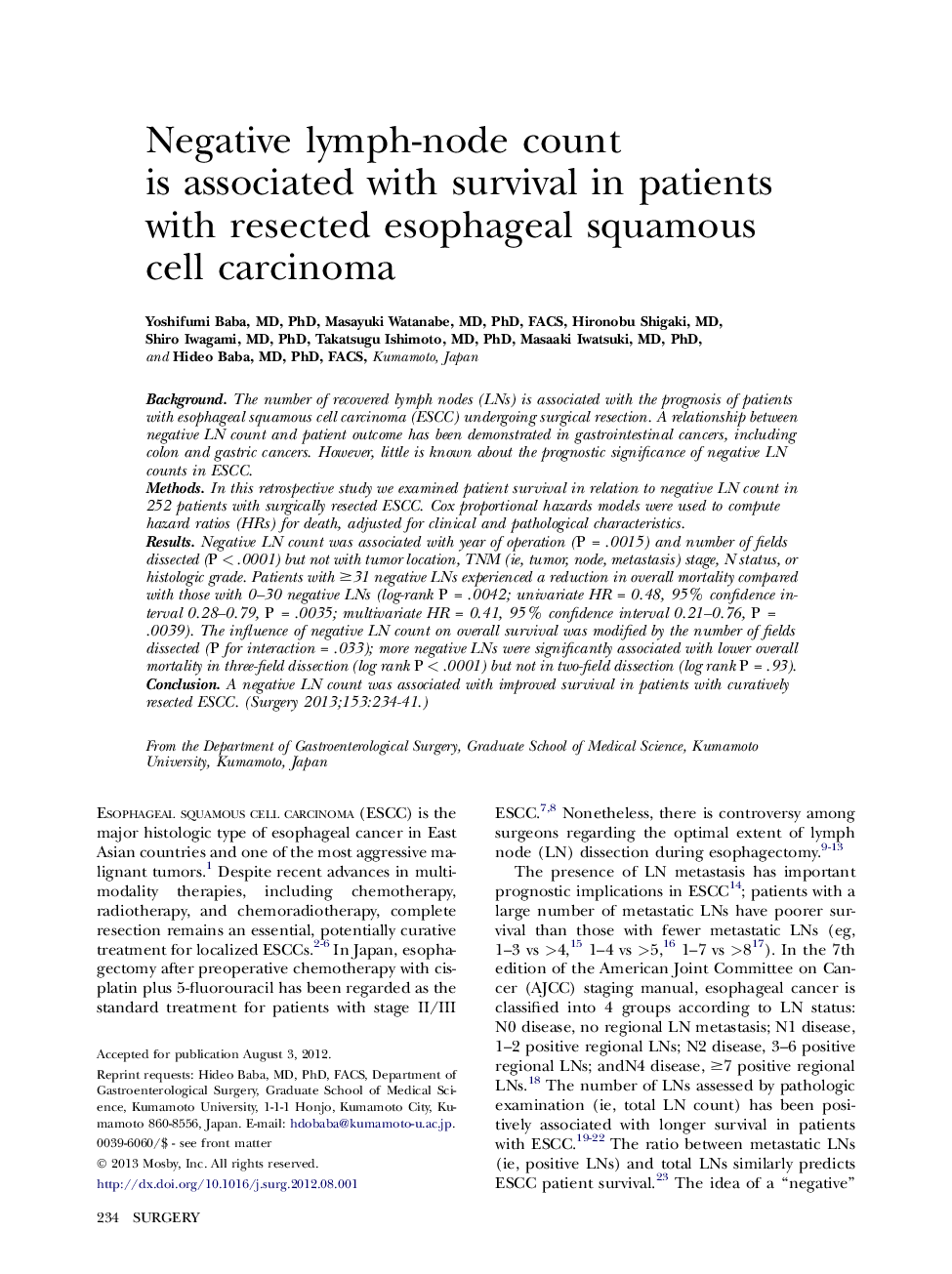| Article ID | Journal | Published Year | Pages | File Type |
|---|---|---|---|---|
| 6255752 | Surgery | 2013 | 8 Pages |
BackgroundThe number of recovered lymph nodes (LNs) is associated with the prognosis of patients with esophageal squamous cell carcinoma (ESCC) undergoing surgical resection. A relationship between negative LN count and patient outcome has been demonstrated in gastrointestinal cancers, including colon and gastric cancers. However, little is known about the prognostic significance of negative LN counts in ESCC.MethodsIn this retrospective study we examined patient survival in relation to negative LN count in 252 patients with surgically resected ESCC. Cox proportional hazards models were used to compute hazard ratios (HRs) for death, adjusted for clinical and pathological characteristics.ResultsNegative LN count was associated with year of operation (P = .0015) and number of fields dissected (P < .0001) but not with tumor location, TNM (ie, tumor, node, metastasis) stage, N status, or histologic grade. Patients with â¥31 negative LNs experienced a reduction in overall mortality compared with those with 0-30 negative LNs (log-rank P = .0042; univariate HR = 0.48, 95% confidence interval 0.28-0.79, P = .0035; multivariate HR = 0.41, 95% confidence interval 0.21-0.76, P = .0039). The influence of negative LN count on overall survival was modified by the number of fields dissected (P for interaction = .033); more negative LNs were significantly associated with lower overall mortality in three-field dissection (log rank P < .0001) but not in two-field dissection (log rank P = .93).ConclusionA negative LN count was associated with improved survival in patients with curatively resected ESCC.
